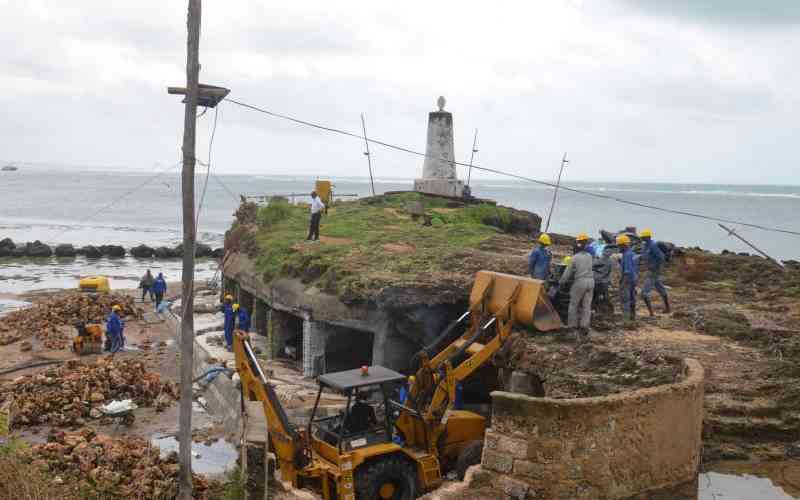By Njeri Cerere
A recent announcement by the City Council of Nairobi regarding plans to further densify Nairobi’s Zones Three, Four and Five to 200 per cent up from the previous 80 per cent has elicited mixed feelings from city residents.
Plot ratios of 200 per cent will allow developers to put up taller and denser buildings.
The immediate reaction is: "What is going to happen to the already clogged streets? What about water supply, considering the volatility of weather conditions and water source levels? What about power outages?"
There’s also the question of the alternative back routes that drivers use to evade the parking lots that some streets are converted to during rush hour and end-of-month traffic. Bypasses and detours help ease the congestion, but not unaccompanied by a tinge of guilt for chocking the houses that line the grids with dust during dry weather.
With plans to further densify already seemingly dense areas, it is true, as Nairobians express, that the impact and strain on existing infrastructure is a point of concern.
While there is a need for our urban areas to absorb higher densities, addressing and resolving traffic circulation and service provision in recently densified areas is inevitable. Kilimani, Kileleshwa and Lavington neighbourhoods were previously zoned as low-density, single-family residential areas and were served by roads and facilities that supported and corresponded to that level of density.
Traffic impact assessments
The neighbourhoods were later rezoned to accommodate multi-families living at higher density with infrastructure and service adjustments following rather than preceding redevelopment.
The absence of traffic impact assessments during the densification process has led to a strain on existing transportation grids.
The discussions around planning or the lack thereof in the city is first an indication that residents’ attitude to participation in matters that affect them directly is making the evolution from tunaomba serikali (we’re asking the Government...) to the more effective problem identification and solution seeking approach. Neighbourhood associations in particular have been actively involved in solving pressing urban management issues such as security and waste management.
Secondly, it means the proverbial link between policy and practice is beginning to emerge as the citizenry thinks critically about the spaces and places it lives and works in. Thirdly, it is an indicator that the true nature of planning as a participatory discipline is beginning to be realised.
Vigilant associations under the aegis of Kenya Alliance of Resident Associations monitor zoning approvals and service provision thereby determining how their neighbourhoods evolve. The challenge then to the City Council of Nairobi and other local government authorities is to provide a platform for standardised rather than ad hoc stakeholder participation in the planning process.
Policy makers
In spite of all the challenges, densification done right can transform a city into a world-class metropolis. This is achieved through a combination of physical infrastructure upgrades and corresponding social infrastructure provisions.
Once policy makers and residents take ownership of strategic planning for infrastructure, services, economic growth and development, and take charge of full implementation, Kenya Vision 2030 will seem less like a pipe dream and become a reality.
Participatory planning
In planning, stakeholder input and full participation is not an option. It is mandatory, especially if investment is a public-private venture.
The consumers of urban policy must be involved in formulation and implementation of planning policy in order to optimise funds. This participation can be regularised through the use of planning commissions, resident/business owner/homeowner associations, localised design standards and approval committees, and community visioning forums.
The writer is an urban and regional planner
 The Standard Group Plc is a multi-media organization with investments in media
platforms spanning newspaper print operations, television, radio broadcasting,
digital and online services. The Standard Group is recognized as a leading
multi-media house in Kenya with a key influence in matters of national and
international interest.
The Standard Group Plc is a multi-media organization with investments in media
platforms spanning newspaper print operations, television, radio broadcasting,
digital and online services. The Standard Group is recognized as a leading
multi-media house in Kenya with a key influence in matters of national and
international interest.
 The Standard Group Plc is a multi-media organization with investments in media
platforms spanning newspaper print operations, television, radio broadcasting,
digital and online services. The Standard Group is recognized as a leading
multi-media house in Kenya with a key influence in matters of national and
international interest.
The Standard Group Plc is a multi-media organization with investments in media
platforms spanning newspaper print operations, television, radio broadcasting,
digital and online services. The Standard Group is recognized as a leading
multi-media house in Kenya with a key influence in matters of national and
international interest.









